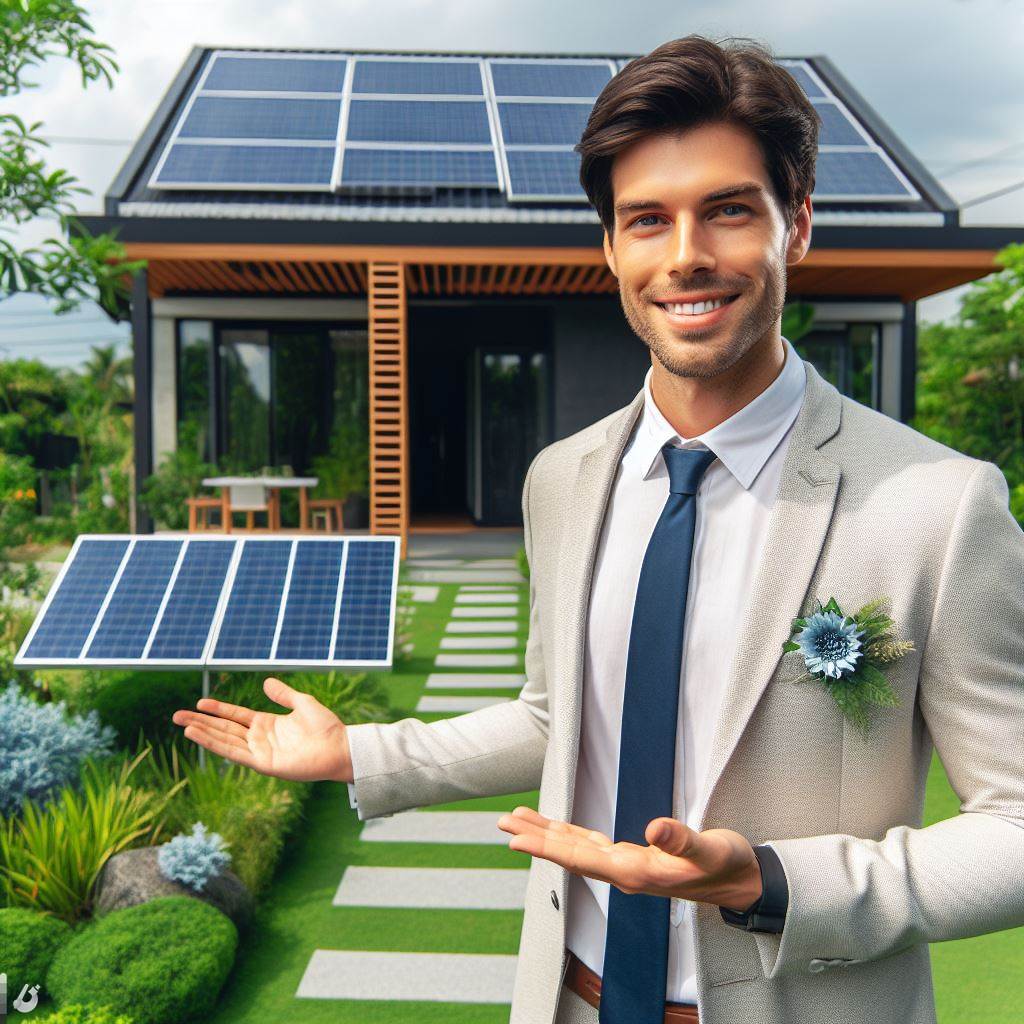Introduction
In 2024, the real estate market skyrockets, witnessing a 15% increase in property transactions, reshaping industry dynamics.
A. Importance of Marketing Tactics
Effective marketing in real estate is paramount, determining success in a competitive market where visibility is key.
B. Thesis Statement
This blog delves into 2024’s game-changing real estate marketing tactics, pivotal for staying ahead in a thriving yet demanding industry.
Shift Towards Digital Marketing
In today’s constantly evolving real estate landscape, marketing tactics have undergone a significant transformation.
The increasing reliance on digital platforms has reshaped how the industry promotes properties and engages with potential buyers.
This shift towards digital marketing allows real estate professionals to leverage the power of technology to reach a broader audience and drive conversions.
A. Increasing Reliance on Digital Platforms
- Traditional marketing strategies like print advertisements and direct mail are losing their effectiveness.
- Digital platforms provide real estate agents with a cost-effective way to reach a wider audience.
- Online listing portals and social media platforms have become essential tools for property marketing.
- With the majority of consumers conducting online research, digital presence is crucial for success.
B. Benefits of Digital Marketing
- Digital marketing offers a wider reach compared to traditional methods.
- Real estate agents can specifically target their advertising efforts to reach their ideal customer base.
- Through digital platforms, agents can track and measure the effectiveness of their marketing campaigns.
- Cost-efficiency is a significant advantage, allowing agents to allocate their marketing budget effectively.
C. Effective Digital Marketing Tactics for Real Estate in 2024
- Virtual Reality (VR) tours enable potential buyers to explore properties remotely and enhance their experience.
- High-quality photography and video content help showcase properties’ unique features and attract buyers.
- Utilizing social media platforms like Facebook and Instagram for targeted advertising, reaching a vast pool of potential buyers.
- Implementing search engine optimization (SEO) strategies to increase visibility in online property searches.
- Creating informative and engaging blog content to establish industry expertise and attract organic traffic.
- Investing in email marketing campaigns to nurture leads and maintain client relationships.
- Using chatbots or AI-powered virtual assistants to provide instant responses and enhance customer service.
- Implementing data-driven marketing techniques to analyze consumer behavior and tailor strategies accordingly.
In fact, the real estate industry has recognized the importance of embracing digital marketing tactics in 2024.
Shifting towards digital platforms offers numerous benefits, including wider reach, targeted advertising, and cost-efficiency.
By utilizing effective strategies such as virtual reality tours, social media marketing, and search engine optimization, real estate professionals can adapt to the digital landscape and successfully engage with their target audience.
Read: Next-Gen CRM Tools for Savvy Real Estate Agents
Utilizing Virtual Reality and Augmented Reality
A. The growing popularity of virtual reality (VR) and augmented reality (AR) in the real estate market
Virtual reality (VR) and augmented reality (AR) have become increasingly popular in the real estate market.
These cutting-edge technologies provide an immersive and interactive experience for potential buyers and sellers, revolutionizing the way properties are marketed and showcased.
With VR, prospective buyers can tour properties from the comfort of their own homes.
They can explore every room, examine the layout, and get a realistic sense of the property’s dimensions.
This eliminates the need for physical visits and allows buyers to narrow down their choices before making any commitments.
AR, on the other hand, overlays digital information onto the physical world.
This technology enables buyers to visualize how furniture, decor, and other elements would fit into a property.
They can virtually place objects in the space to see how it would look and make informed decisions based on their preferences.
The popularity of VR and AR in the real estate market can be attributed to their ability to offer a more convenient and immersive experience.
Buyers can save time and effort by narrowing down their options virtually, while sellers can attract a wider audience by showcasing their properties in a unique and engaging way.
B. How these technologies enhance the home buying or selling experience
Virtual reality (VR) and augmented reality (AR) technologies have revolutionized the home buying and selling experience, making it more interactive, informative, and convenient for both buyers and sellers.
For buyers, these technologies allow them to explore and evaluate properties in a realistic and immersive manner.
VR tours enable buyers to virtually walk through different rooms, assess the property’s condition, and envision themselves living in the space.
This helps buyers make more informed decisions and saves them valuable time by eliminating the need for multiple physical visits.
AR, on the other hand, enhances the visualization aspect of the home buying experience.
Buyers can use AR to place furniture, experiment with different room layouts, and see how the property would look with various design choices.
This helps them imagine the potential of a space and determine if it aligns with their preferences.
For sellers, VR and AR technologies provide an innovative and compelling way to market their properties.
Sellers can provide immersive VR tours, letting buyers customize and visualize properties virtually.
This not only attracts a wider audience but also creates a lasting impression that sets their listings apart from competitors.
C. Examples of successful VR or AR marketing campaigns in 2024
- Virtual Reality: Real Estate’s VR campaign in 2024 allowed potential buyers to remotely tour luxury properties using VR headsets.
This resulted in a significant increase in remote visits and ultimately led to multiple successful sales. - Augmented Reality: Realtors’ AR campaign in 2024 enabled buyers to use their smartphones to overlay virtual furniture and decor onto empty rooms.
This interactive experience helped buyers visualize the potential of each space and resulted in quicker decision-making. - Virtual Reality: Developers partnered with a VR technology company to create a fully immersive VR experience for a pre-construction project.
Prospective buyers could virtually walk through the development, explore floor plans, and even customize finishes.
This forward-thinking approach generated considerable buzz and led to a high number of pre-sales.
In 2024, VR and AR marketing campaigns attract buyers, aid decision-making, and boost real estate sales.
Read: Smart Homes: Revolutionizing Real Estate Sales

Influencer Marketing in Real Estate
A. The rise of influencer marketing and its impact in various industries
In recent years, the phenomenon of influencer marketing has taken the marketing world by storm.
Influencers have become a powerful force in shaping consumer decisions and preferences.
With the rise of social media platforms, influencers have gained a massive following and have become trusted voices in various industries.
Influencer marketing has proven to be especially effective in industries like fashion, beauty, and travel.
These influencers have the power to sway their followers’ purchasing decisions and can generate substantial brand awareness.
Realizing the potential of influencer marketing, the real estate industry has also started to tap into this powerful marketing tactic.
B. Potential benefits of collaborating with real estate influencers
Collaborating with real estate influencers can bring numerous benefits for real estate professionals.
Firstly, influencers have a dedicated and engaged audience who trusts and values their opinions.
By partnering with the right influencers, real estate professionals can leverage this trust and expand their reach to a wider audience.
Secondly, influencers have the ability to create authentic and relatable content.
They can showcase properties in a way that resonates with their audience, making it more appealing and relatable.
This can potentially lead to increased interest and inquiries from potential buyers or renters.
Moreover, collaborating with real estate influencers can also enhance the reputation and credibility of real estate professionals.
When an influencer endorses a real estate professional or a property, it adds a layer of trust and credibility to their brand.
This can help build a positive perception in the minds of potential clients.
C. Successful influencer marketing campaigns in the real estate industry in 2024
In 2024, influencer marketing in the real estate industry saw several successful campaigns.
One example is a collaboration between a luxury real estate agency and a renowned lifestyle influencer.
The influencer created stunning content featuring the agency’s properties, showcasing the luxurious lifestyle associated with their brand.
This campaign resulted in increased website traffic and inquiries from high-net-worth individuals.
Another successful campaign involved a real estate development company partnering with a home renovation influencer.
The influencer documented the process of renovating a property purchased from the company, highlighting its transformation from a fixer-upper to a dream home.
This campaign generated significant interest from potential buyers, resulting in multiple sales for the company.
Additionally, a real estate investment firm worked with an investment influencer to promote their latest project.
The influencer shared his experience of investing in the firm’s properties and the favorable returns he achieved.
This campaign attracted attention from a wide range of investors, leading to a successful fundraising campaign for the firm.
Overall, influencer marketing has become a highly effective tactic in the real estate industry.
By collaborating with influencers, real estate professionals can tap into the influencers’ engaged audience, create relatable content, and enhance their reputation.
The success of influencer marketing campaigns in 2024 serves as a testament to the power of this marketing strategy in the real estate industry.
Read: Green Homes: Future of Real Estate Investments
Personalized Video Marketing
A. Captivating Attention Through Video Marketing
Video marketing is a dynamic tool for capturing attention in the competitive real estate landscape.
In 2024, its importance has only intensified as consumers increasingly seek immersive experiences.
Through captivating visuals and engaging narratives, video content can effectively convey the unique selling points of a property, enticing potential buyers or sellers to learn more.
By utilizing active voice and concise messaging, real estate professionals can grab the viewer’s attention from the outset, driving them to take action and explore further.
B. Fostering Memorable Experiences with Personalized Video Content
The power of personalized video content lies in its ability to create meaningful connections with the audience.
In today’s digital age, consumers crave authenticity and relevance.
By tailoring video content to individual preferences, real estate marketers can craft experiences that resonate on a personal level.
Whether it’s addressing the viewer by name, showcasing properties that align with their specific criteria, or offering customized recommendations, personalized video content leaves a lasting impression.
By infusing emotion and storytelling into these videos, marketers can evoke feelings of excitement, belonging, and aspiration, ensuring that their message resonates long after the video ends.
C. Examples of Effective Personalized Video Marketing Campaigns in 2024
Several real estate brands have embraced personalized video marketing with remarkable success in 2024.
One standout campaign is the “Home Tour Companion” series, where each video is meticulously tailored to individual preferences, offering immersive experiences that showcase dream homes in exquisite detail.
Another notable example is the “Meet Your Future Home” campaign, which delivers personalized messages to potential buyers, fostering emotional connections and expediting the decision-making process.
Additionally, campaigns like “Design Your Dream Space” and “Neighborhood Explorer” leverage personalized video content to offer tailored recommendations and insights, further enhancing the overall customer experience.
Real estate pros can learn from effective personalized video marketing. Examples inspire engagement, driving success.
Delve into the Subject: Real Estate Agent Tax Tips 101
Leveraging Social Media Platforms
A. Importance of social media platforms in real estate marketing
Social media platforms have become essential tools for real estate marketing, allowing agents to reach a wider audience and engage with potential buyers and sellers in a more direct and personalized manner.
B. Benefits of using different social media platforms for reaching target audiences
- Facebook: With its large user base and versatile advertising options, Facebook enables real estate professionals to target specific demographics and geographic areas, ensuring their content reaches the right audience.
- Instagram: Ideal for showcasing visually appealing properties, Instagram’s photo and video features allow real estate agents to create eye-catching content that attracts potential buyers.
- LinkedIn: As a professional networking platform, LinkedIn provides real estate professionals with opportunities to connect with other industry experts, build relationships, and share valuable insights or listings.
- Twitter: Due to its fast-paced and real-time nature, Twitter allows real estate agents to stay updated with industry trends and news, engage in timely conversations, and promote listings or open houses effectively.
- YouTube: With its video-centric approach, YouTube offers real estate professionals a powerful medium to showcase property tours, host virtual open houses, and share informative content.
C. Examples of real estate brands effectively utilizing social media in 2024
1. Compass
Compass leveraged the power of Facebook advertising by targeting first-time homebuyers within a 10-mile radius of their office location.
They used engaging visuals and compelling ad copy, resulting in a significant increase in leads and conversions.
2. Dream Homes Inc.
Dream Homes Inc. utilized Instagram’s Stories feature to provide virtual tours of their luxury properties.
By taking advantage of Instagram’s location tags and hashtags, they attracted potential buyers who were specifically interested in high-end properties, increasing their chances of closing sales.
3. Open Door
Open Door showcased their expertise on LinkedIn by publishing informative articles about the home-buying process, market trends, and financing options.
This approach positioned them as trusted advisors, leading to an increase in inquiries and referrals.
4. Local Realty
Local Realty made use of Twitter’s advanced search options to find and engage with users discussing real estate in their target area.
By joining relevant conversations, sharing valuable insights, and including links to their listings, they successfully raised brand awareness and attracted potential clients.
5. Sunshine Real Estate
Sunshine Real Estate created a YouTube channel where they regularly uploaded virtual property tours, neighborhood spotlights, and informative videos about the home-selling process.
This strategy generated a loyal following of subscribers and increased website traffic.
In a nutshell, leveraging social media platforms remains crucial in real estate marketing as they allow agents to connect with broader audiences and showcase properties effectively.
Real estate professionals can optimize reach and engagement by tailoring content to each platform.
They utilize different social media platforms, maximizing audience connection.
Read: How AI is Reshaping Real Estate Strategies
Conclusion
Modern real estate marketing integrates social media, virtual reality tours, AI analytics, personalized content, and interactive experiences.
It cannot be overstated how important it is to stay abreast of the latest trends and innovations in the ever-evolving real estate industry.
With competition fiercer than ever, those who fail to adapt risk falling behind and missing out on valuable opportunities.
Therefore, I urge you, dear readers, to not only familiarize yourselves with the highlighted tactics discussed in this blog but also to actively incorporate them into your own marketing strategies for 2024.
By doing so, you can position yourself ahead of the curve, attract more leads, and ultimately achieve greater success in the dynamic world of real estate.




